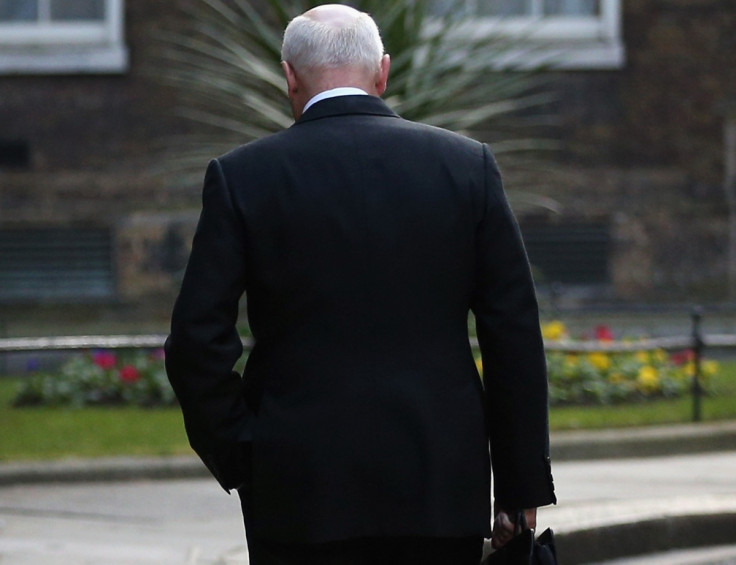Iain Duncan Smith is right to resign – I never saw any evidence of a conscience

I welcomed the resignation of Iain Duncan Smith as a real opportunity to get welfare reforms right. However, the sanctification we have been witnessing since, and his desperate attempts to secure a legacy, are disgusting.
Last week's budget included plans to alter Personal Independence Payments (PIP), which Duncan Smith called "a compromise too far".
In the meetings I have had with him, I have never seen any evidence of the conscience we are hearing so much about. I will not be shedding any tears for the evangelical, aggressive and routinely failing welfare reforms that were the personal fiefdom of the now-former secretary of state for the Department of Work and Pensions (DWP).
It is no secret that I had a real problem with the way that the DWP was introducing these welfare reforms, and as a result we have had very robust exchanges. The last meeting over Employment Support Allowance Work Related Activity Group (ESA WRAG) was essentially an argument, and it became clear to me he had lost his way. The announcements to be published in the forthcoming welfare reforms White Paper were just frightening: there was even an outrageous suggestion that the central reform would be for work to be prescribed by NHS professionals! Absolutely unbelievable.
The failure of the Back to Work programme for those on ESA WRAG – only 1 in 100 were able to get a job – was our failure, not the failure of the disabled jobseekers on it. The changes announced to PIPs are because we failed again. Universal Credit has failed to be rolled out on time and has hit constant delays. The rhetoric is great, but the reality is that little practical support is available for someone with mental-health issues to be helped backed into work.
We have to identify the small businesses that will work with us to offer jobs, then help provide the skills that the employee and employer will need to make it work. This is the real challenge; of the approximately 500,000 people currently on ESA WRAG at the moment, 248,000 have mental health issues. How are they going to find work unless we help them step by step with practical support? Iain Duncan Smith's answer was to take £30 a week off them, as it would motivate them to look for a job. Again - absolutely unbelievable.
I don't always see eye to eye with the Treasury, but it is disingenuous to blame them, when the problem was always in my experience at the very heart of the DWP. We must never forget that this year the Conservative Government is spending £34 billion on defence, but £50 billion on support for the sick and disabled. Labour spent £42.6 billion in 2010 for the sick and disabled, but they have always been more interested in headlines than actually helping anyone.
I was furious over Tax Credits and successfully fought to have it reversed. This was followed by the abolishment of ESA WRAG for new claimants in 2017, which I also voted against and fought. Then the PIP announcements were just shocking, but not simply for financial reasons, as spending is actually going up year-on-year in real terms. They were shocking because once again we were being asked to support a policy without any idea of what the reforms would be. What would be the additional support offered to disabled people?
These reforms are contained in a DWP White Paper, which we have been unable to access. To pressure the DWP, I was going to publish my own Green Paper – a prequel if you like, alongside concerned colleagues.
We now have a real opportunity to get these welfare reforms right, and I am going to fight to ensure changes are for the benefit of those receiving welfare and helping them back into work with practical support. It is the proud duty of the Conservative Party to help those who fall on hard times and protect the most vulnerable in society. I look forward to my first meeting with Stephen Crabb, the new secretary of state for DWP, and will urge him to work with charities and disability groups to secure the changes we need to provide practical help, instead of nice rhetoric.
Stephen McPartland is the Conservative MP for Stevenage
Key points from Iain Duncan Smith's resignation letter:
- I am incredibly proud of the welfare reforms that the government has delivered over the last five years. Those reforms have helped to generate record rates of employment and in particular a substantial reduction in workless households
- I truly believe that we have made changes that will greatly improve the life chances of the most disadvantaged people in this country.
- I have for some time and rather reluctantly come to believe that the latest changes to benefits to the disabled and the context in which they've been made are a compromise too far.
- I am unable to watch passively whilst certain policies are enacted in order to meet the fiscal self-imposed restraints that I believe are more and more perceived as distinctly political rather than in the national economic interest.
- I hope as the government goes forward you can look again, however, at the balance of the cuts you have insisted upon and wonder if enough has been done to ensure "we are all in this together".
© Copyright IBTimes 2024. All rights reserved.






